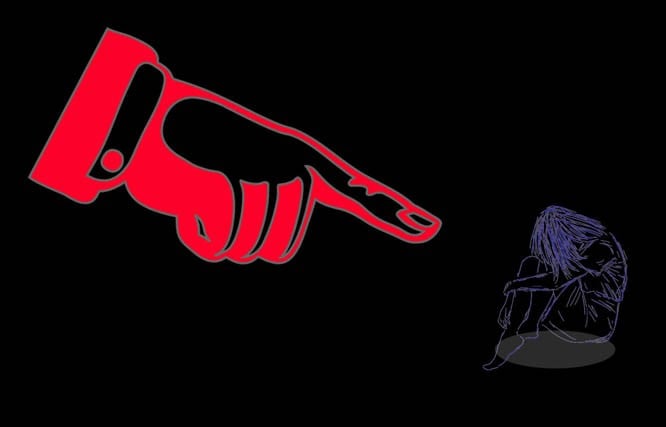
When we laugh at those who don’t manage to be perfect at all times we teach our children to perpetuate a cycle of bullying

He learnt cycling at a later than normal age, but made a mistake to practice on the road, got imbalanced, fell off the bike, made himself a laughing stock, and could never get up to pedal again in life. The teacher once hit him in class for an incomplete homework and the incident is still recalled in every annual reunion. She bought herself a pair of stiletto heels, wore them to a party, slipped at the step of the door and people talked more about how she looked lying there than her broken knee.
Was anyone of those talked about above, at fault? Recently, I’ve seen a lot of people taking to social media about something termed as ‘victim blaming’. Once again, the society is blamed, especially in case of rape victims. But does victim blaming exist only in such serious cases? Has it not been a part of this culture for a really long time? Good habits are hard to maintain whereas bad ones die hard and rather multiply; this is the law of nature. We teach our children to laugh when someone is scared, loses balance and tumbles over, hits their head on a car door frame, and all the other instances where the sufferer is not at fault.
Being a differently raised kid, I could never figure out why Jerry always needed to be sidelined in the famous cartoon series Tom & Jerry. A lot of other cartoons and children’s movies have this underlying message that the one who loses in the end can never be a hero.
Have you ever wondered how it feels when an old lady takes a sleeping pill for a little nap and the kids ring the doorbell and run? Instead, that lady’s appearance at the door gives us a good laugh. The kids are never laughed at nor discouraged because it is an accepted act; it is ‘something that the kids do’.
A mindset does not develop overnight. It takes time and most importantly, reinforcement, as psychologists put it. Positive reinforcement in the form of acceptance or encouragement plays a vital role in setting something up as a norm. We, as a society validate victim blaming, and by doing this, we actually promise to take it further. When a ‘wrong’ spreads its roots, we start to think about it. I hope that one day we admit that we’re the ones who furthered the wrong to such an extent. Only if anyone of us had taught our kids not to laugh at another kid when he is bullied in school, it could have made some difference.
Have we ever supported the idea of blaming the wrong rather than the wronged? What if you had taught your kid to laugh at the classfellow who ate the other kids’ lunch or tripped them up. The problem would not have worsened this much.
As I said earlier, a trend of campaigning has taken over social media about this issue at hand and society’s insensitivity towards it. It is good to see people expressing themselves on something that needs immediate attention, but it is wrong to call it insensitivity. It is actually a desensitisation -- constant exposure to a negative stimulus resulting in its normalisation -- towards which we have unknowingly contributed.
I always appreciate it when people come forward to talk about victim-blaming but tracing its origins and taking corrective action is the need of the hour. Working on it at a micro-level is important, for which everyone should play their part, starting with their own self.